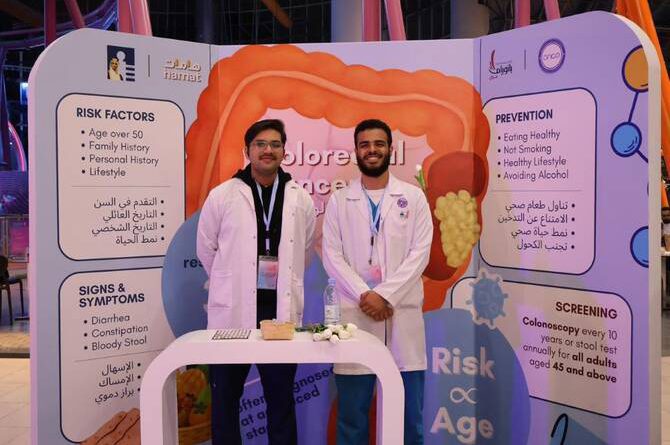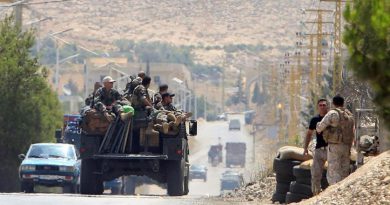Alfaisal University Students Lead Community Initiative to Promote Cancer Awareness in Riyadh
Riyadh — A group of medical students from Alfaisal University organized a community-focused cancer awareness event in the capital last week, creating an interactive platform designed to educate the public about prevention, screening, and early detection in a clear and accessible format.
The students aimed to encourage residents to engage with reliable medical information and understand the importance of lifestyle choices and timely tests in lowering long-term cancer risks.
The initiative was led by the Oncology Interest Group, a student-driven organization committed to bridging the gap between academic knowledge and community needs through outreach programs and health-focused discussions.
Organizers said the event was structured to simplify complex medical topics, making cancer awareness approachable for people of all ages and backgrounds across Riyadh.
One of the event’s coordinators, medical student Inaam Haque, said the team wanted to create an environment where the public could learn directly from students and interact openly about concerns related to cancer types and risk factors.
He explained that many people underestimate the relevance of cancer because it is not always visible in early stages, but awareness remains essential since the disease can affect anyone at any point in life.
Group director Malek Handoumeh emphasized the importance of empowering the community with practical and accurate information that could contribute to real improvements in long-term health outcomes.
He said early detection continues to be one of the most effective tools in reducing cancer-related mortality, and educating the public on this aspect can have a significant impact over time.
During the event, visitors participated in multiple interactive booths staffed by students who shared data on common cancers affecting men and women, along with prevention strategies and lifestyle recommendations.
Participants also explored visual displays, received reading materials, and took part in discussions centered on screening guidelines and risk-reducing habits suitable for different age groups.
The educational sessions highlighted trends seen within Saudi Arabia, where certain cancers remain consistently more common among specific groups.
Women in the Kingdom often face higher rates of breast, cervical, and colorectal cancers, while men more frequently encounter lung cancer, non-Hodgkin lymphoma, and colorectal cancer.
Haque noted that while some cancer types vary in origin or risk level, many prevention strategies align, beginning with a commitment to healthier daily practices.
He stressed the importance of routine physical activity, balanced nutrition, and proactive lifestyle management to reduce overall vulnerability to multiple diseases.
Smoking was addressed as one of the strongest and most preventable risk factors, with organizers reinforcing that tobacco exposure contributes not only to lung cancer but also to several other forms of the disease.
The students encouraged visitors to consider quitting or reducing smoking habits, emphasizing how even small changes can lead to long-term benefits.
The event served as an example of how student-led initiatives can contribute to broader public health goals by making specialized knowledge more accessible and engaging.
Organizers said they hope to expand the program in future semesters and continue developing community-based health education efforts across different parts of Riyadh.
The initiative also highlighted the growing role of universities in promoting wellness, as students increasingly take part in outreach projects that encourage preventive care and informed decision-making.
By presenting medical information through interactive formats, the Oncology Interest Group aims to create long-term awareness patterns that motivate residents to prioritize screenings and healthy choices.
Through these efforts, the students demonstrated how academic communities can support national health objectives by fostering conversations that build understanding, encourage openness, and allow individuals to better recognize symptoms and risk factors.
The event ultimately reflected a broader commitment to improving public well-being through education, engagement, and continuous cooperation between students and local residents.



